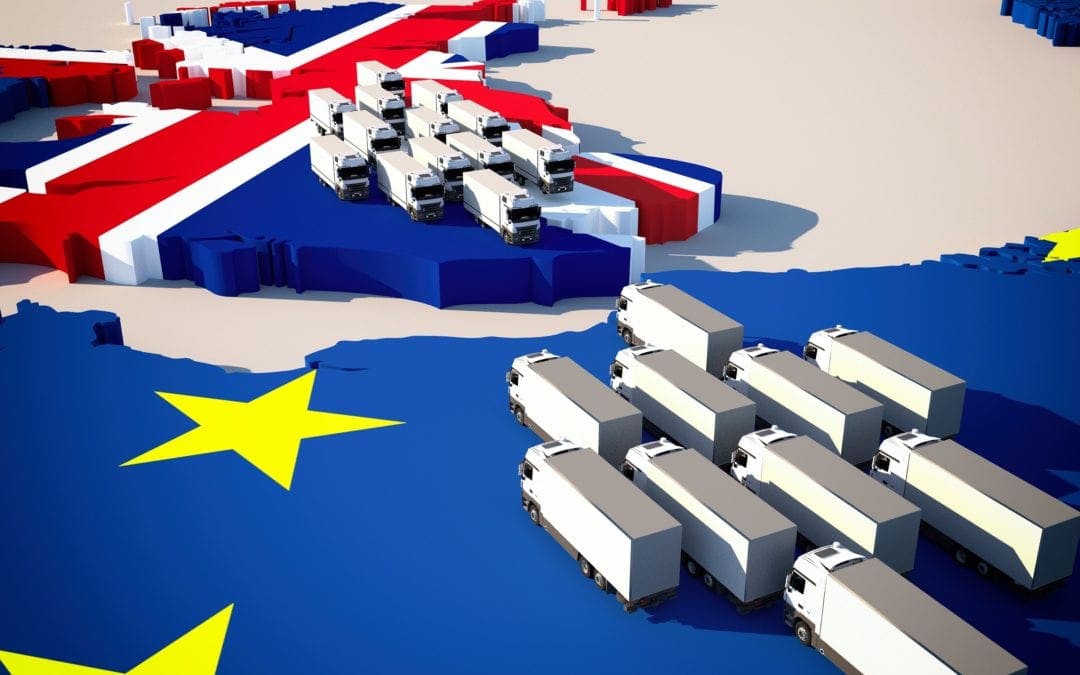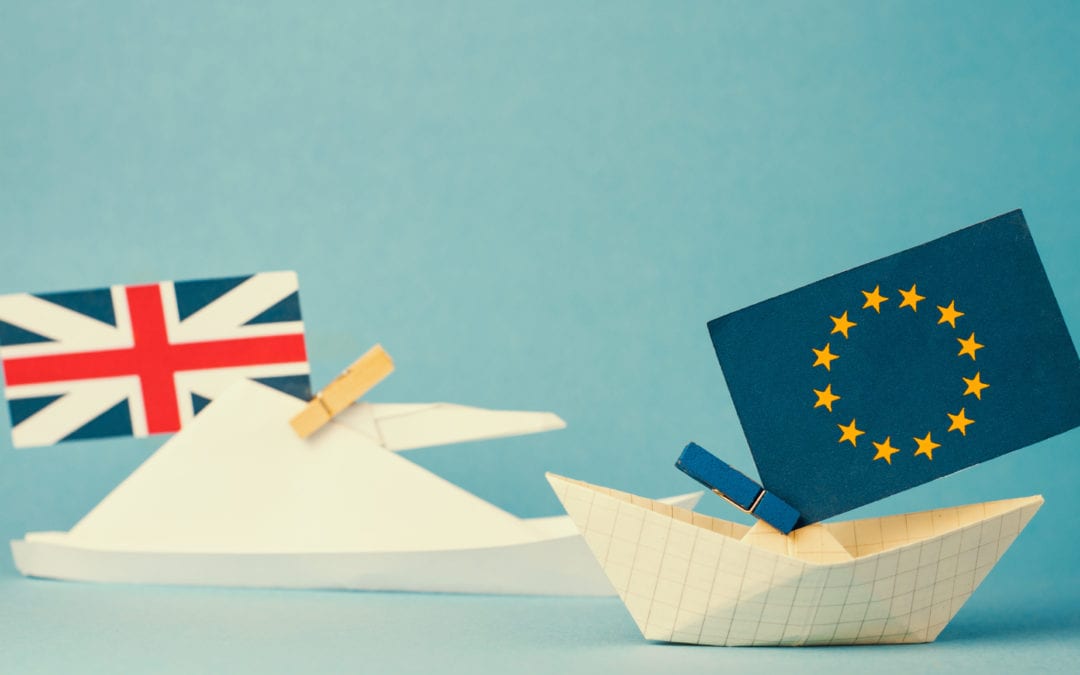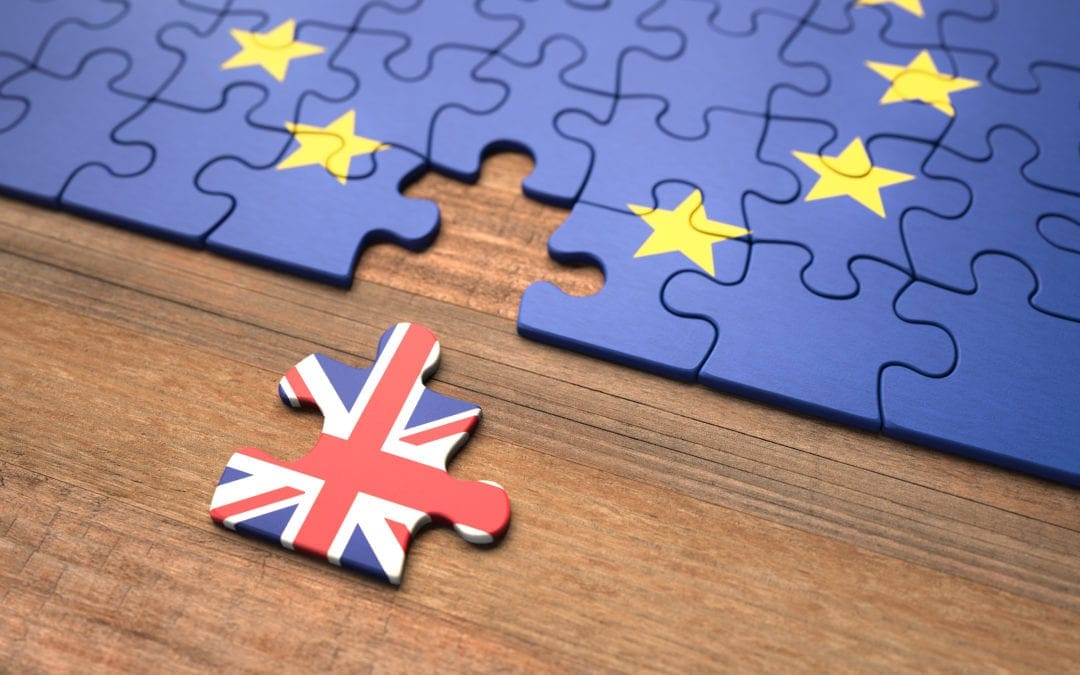
Brexit – Exports to EU countries from Great Britain
Brexit – Exports to EU countries from Great Britain
WHO WILL BE AFFECTED?
All businesses that export goods from Great Britain from 1 January 2021 onwards.
NEW RULES FOR EXPORTING GOODS
EORI number – Economic Originator Registration Identification
You are required to have an EORI number to move goods from Great Britain to non-EU countries currently. From 1 January 2021 you will require an EORI number to move goods from Great Britain to EU countries. This number must start with GB, followed by your business VAT number (if registered) and usually three zeros.
If you have not done so already apply for an EORI number as soon as possible. It can take up to a week to get one.
To apply you will need your:
- VAT number and effective date of registration – found on your VAT registration certificate
- National Insurance number – if you are an individual or a sole trader
- Unique Taxpayer Reference (UTR) – found on correspondence from HMRC
- Business start date and Standard Industrial Classification (SIC) code – found at Companies House
- Government Gateway user ID and password
Customs declarations
From 1 January 2021, you will need to make customs declarations when exporting goods to the EU. These rules currently apply to exporting goods to the rest of the world.
You can make the declarations yourself or hire someone else such as a courier, freight forwarder or customs agent. Most businesses use a third party or specialist agent to do this. This is because you will need compatible software and certain detailed knowledge as the declarations can be complicated. If you would like more detailed guidance on how to make declarations yourself please see https://www.gov.uk/guidance/customs-declarations-for-goods-taken-out-of-the-eu.
If you decide to hire a business to deal with customs on your behalf they must be based in the UK. They will typically:
- Check the classification and valuation of your goods, and make sure you use the right commodity codes
- Liaise with government agencies and customs authorities on your behalf
- Advise on any necessary licenses for export of restricted or hazardous goods
- Prepare and submit documents which have to be filed to clear customs processes
See: https://www.gov.uk/guidance/appoint-someone-to-deal-with-customs-on-your-behalf for further information.
Where goods are exported with a value of less than £873 full export documentation is not required, you should obtain and keep a certificate of posting to support the VAT zero-rating of your supply. You must complete and fix a custom declaration (CN22, CN23 or a Parcelforce Worldwide Despatch Pack incorporating the CN23) which can be obtained from the Post Office. An invoice should also accompany the package. You will not need an EORI number.
It is also worth noting that from 1 January 2021 the rules for exporting certain types of goods are changing. You may need further export licences or labelling for example. To check the rules visit https://www.gov.uk/prepare-to-export-from-great-britain-from-january-2021 for more information.
VAT on Goods
Currently businesses selling and delivering goods to EU consumers may have to register for VAT in multiple EU member states under distance selling rules (see https://www.gov.uk/online-and-distance-selling-for-businesses). From 1 January 2021 these rules will no longer apply and all exports to EU consumers will be zero-rated exports.
Goods can be sent as a direct export, where you send the goods outside of the UK or are responsible for arranging transport yourself or appointing a freight agent. The goods can be exported by any of the following:
- In your baggage
- In your own transport
- By rail, post or courier service
- By a shipping line, airline or freight forwarder employed by you
Goods may be sent as an indirect export, the customer (based outside the UK) or their agents collects or arranges the collection of goods from you.
A zero rated supply is one which is subject to VAT but where the VAT is at 0%. You must meet certain conditions before you can zero rate the goods. These conditions cover:
- Evidence (either official or commercial) you must hold to prove entitlement to zero rating
- Time limits in which the goods must be physically exported from the UK
- Time limits in which you must obtain evidence of export
For each condition there is different evidence required for direct and indirect exports. For further information on zero rating and the conditions which must be met please see https://www.gov.uk/guidance/vat-on-goods-exported-from-the-uk-notice-703 (the guidance still refers to outside the UK or EU, please ignore any mention of EU and follow the guidance for all exports out of Great Britain).
When the goods arrive in the destination country they may be subject to import VAT and duty, therefore you may to make your customer aware that import VAT will be payable on top of the purchase price. There is currently a low consignment relief for goods with a value of less than €22 which exempts the goods from import VAT and duty. This limit will be removed from 1 July 2021 (was planned for January 2021 but has been delayed due to Covid-19). If goods are sold between January 2021 to June 2021 and are valued at €22 or less they will be exempt from VAT and duty. For a value of more than €22 import duty and VAT will be payable.
From 1 July 2021 you can opt to charge VAT at the point of sale rather than the customer paying import VAT if the goods are valued at less than €150 which should assist in avoiding delays of the customer receiving the goods. In order to do this you will be able to register in one EU member state for the Import One Stop Shop. Import VAT will then be payable at the VAT rate of the customers member state. There will be one VAT return that will contain sales made to all EU countries and will be submitted in the member state where the registration was made. Consider the language of the country where registration takes place as forms will likely be in this language and the possibility of appointing a fiscal representative (a local entity that represents a foreign trader for VAT purposes).
In certain circumstances EU marketplaces facilitating sales to EU consumers (such as Amazon) will be responsible for the VAT on the suppliers behalf, the VAT will be taken care of at the point of sale by the provider.
Retail Scheme
The retail export scheme (where sales made to non-EU visitors could be zero rated) will no longer be available from 1 January 2021. Sales made to visitors can be zero-rated if the UK business arranges transport/delivery to an address outside the UK or visitors will have to pay UK VAT on the purchase to take it away with them.
If you have any questions in relation to export rules after 1 January 2021 please contact Yvonne Collings on [email protected] or call 01243 782 423!
Alternatively you can head to our contact form, plus we have our Brexit Help Centre with the latest updates.



